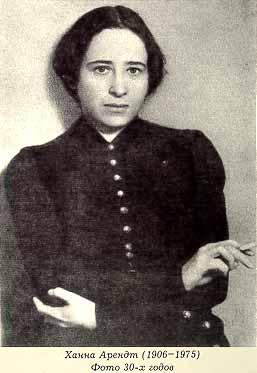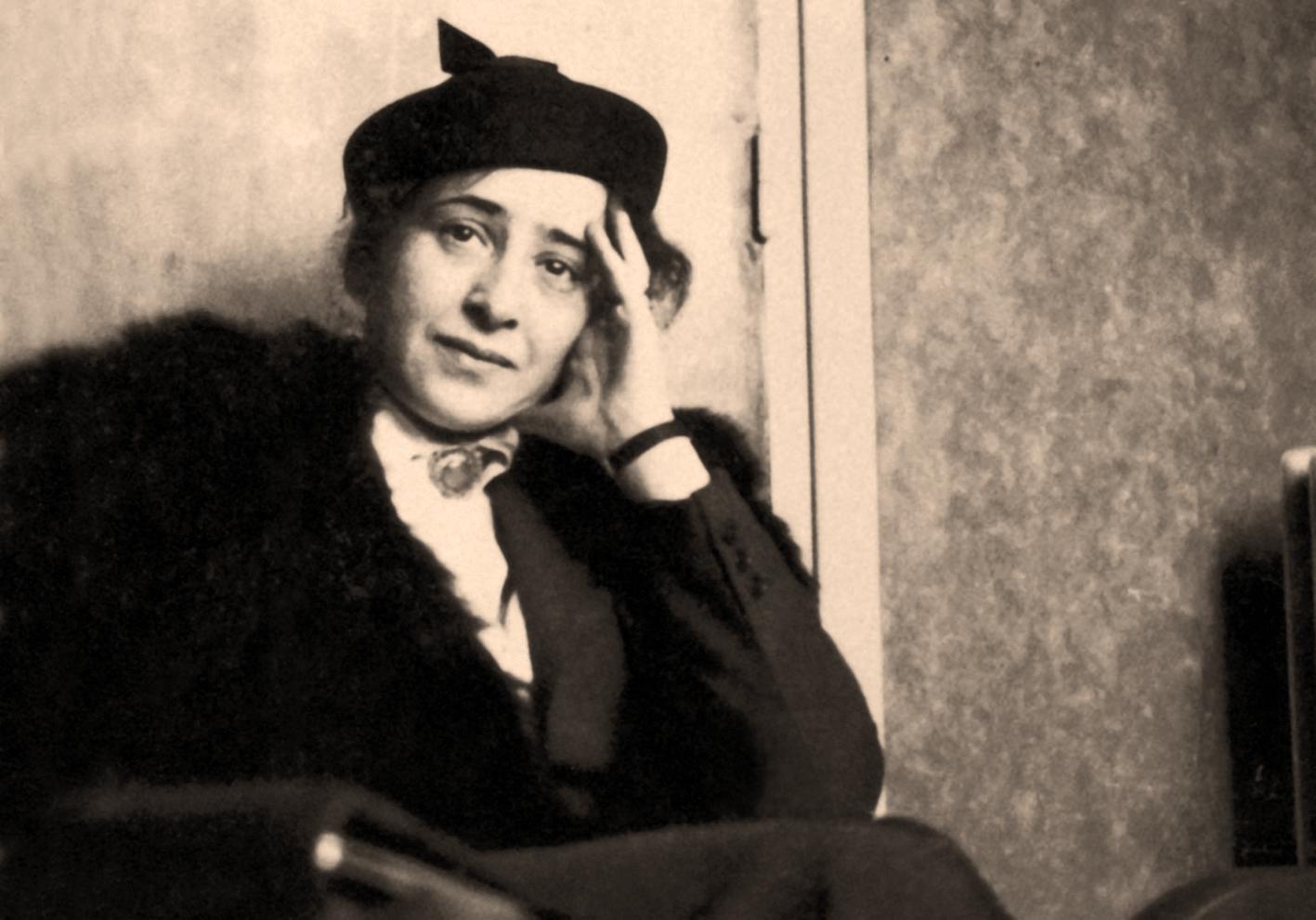A while back I wrote about the Milgram experiments and what I called the problem of evil. At the time I recalled, but did not mention, Hannah Arendt's notorious construction, "fearsome, word-and-thought-defying banality of evil." A quarter century ago Arendt was attacked for her use of the phrase with its suggestion that the perpetrators of the Holocaust were normal in the same sense that their victims were normal. She was held to be trivializing a world-changing event and demeaning the millions who perished in it. Though she wrote that Adolpf Eichmann deserved to die on the gallows, many believed that she had excused him of guilt and, in fact, indulged in the hideous act of blaming European Jews themselves for their extermination.
It took a decade or more before more balanced appraisals could appear. In an NYRB exchange of letters printed in 1980, A.P. Martinich said Elie Kedourie had unfairly attacked Arendt by calling her perverse and saying she trivialized Eichmann's crimes. In his response, Kedourie says that wasn't the intent but that he could not accept Arendt's conclusion that evil could be banal: "What the qualification banal seems to me in the end to do is, precisely, to banalize evil, to make it not something in which choice is central, but rather the outcome of the inability to avoid clichés and the like. This I find unsustainable and objectionable."
Since then it has become less objectionable to assert that ordinary-seeming people can do monstrous things. As James Waller wrote in a book called Becoming Evil (OUP, 2002), Eichmann "did his job simply, and thoughtlessly, because he was a person 'duty bound' to a social hierarchy committed to such extraordinary evil."
And more recently two authors of a paper given in the Argyle Lecture series of 2007 say that ordinary people are drawn to join groups that develop their predisposition to cruelty and then collectively "normalize oppression." They say
This view that ordinary people can do monstrous things derives strength neither from psychology alone nor from history alone, but from the convergence between the two. And that convergence extends beyond identification of the phenomenon, to the way in which it is explained. ...This makes sense to me. Boys and girls are taught that life is precious and murder heinous and yet those who become soldiers are then taught to kill. In this teaching inflicting death is taught as duty; it is taught by imposing the disciplines of strict hierarchy; and it is assured by establishing a culture in which group loyalties surpass personal needs and desires. The experiments of Milgram and Zimbardo show how easily this is done.
When Milgram sought to make sense of what had happened in his own obedience studies, ... he translated Arendt’s ideas into the concept of an 'agentic state' in which people suspend their capacity to make informed moral judgments and relinquish responsibility for what they do to those in authority. Regardless of what it is that they are being asked to do, once in an agentic state, the person’s sole concern becomes how well they do the bidding of these authorities. These ideas were later taken even further by Zimbardo. He argued that the sense of obligation and duty to which Milgram referred was not dependent on the presence of strong authority figures. Instead, he suggested that people can be led to perpetrate atrocities not because they blindly follow orders, but because they conform blindly to what is expected of them as a group member.{see Questioning the banality of evil, S. Alexander Haslam and Stephen D. Reicher re-examine the established view, in an article based on the 2007 Argyle Lecture and Stanford prison experiment.}
Strangely, Adam Kirsch ignores these developments in a New Yorker piece devoted to what he sees as Arendt's regretable predispositon to view evil as banal: Beware of Pity, Hannah Arendt and the power of the impersonal, January 12, 2009. Though he does not say so outright, the piece conveys to the reader that Arendt did, indeed, excuse the executioner and unpityingly convict the blameless victim. Read it if you have the time. While unfair to Arendt and her work it is well written and gives many useful insights into her psychological makeup and the key moments in the development of her intellectual and personal lives.
Some extracts:
Arendt’s legend—or, perhaps it is better to say, her image—has become as important to posterity as her theories. In part, of course, this is because Arendt is one of the few women in the traditionally male pantheon of political philosophy. It makes sense that it is feminist readers who find the most food for thought in Arendt’s image—even though Arendt denied that she was a feminist. Julia Kristeva devotes some pages of her recent book on Arendt to her changing appearance, as documented in photographs: from the girlish “seductress” of the nineteen-twenties, gazing poetically at the camera, to the confident intellectual of the fifties, whose “femininity . . . beats a retreat” as her face becomes “a caricature of the . . . battle scars” received during her public career.
Kristeva’s reverie on Arendt’s “psychic bisexuality” is not the kind of attention that gets paid to Kant or Heidegger. Yet it is a sign of the way that Arendt has emerged as something both more and less than a political theorist. The most rewarding way to read Arendt, and the best way to make sense of both the strengths and the limitations of her work, is to approach her as Michelle-Irène Brudny does in “Hannah Arendt: An Essay in Intellectual Biography”: “I definitely take Hannah Arendt to be less a political philosopher or a political theorist . . . than an author in the strong sense of the word.” Kristeva, still more emphatically, considers Arendt’s writings “to be less a body of work than an action.” Like so many Jewish writers of her generation, Arendt attempted in her work to shine the light of intellect on the extreme darkness she lived through. That she chose to do this in the most impersonal of genres—philosophy and history—rather than through memoir, or even poetry (which she loved to read, and wrote from time to time), is itself a clue to the immense psychological pressures that shaped her work and, in the end, partly disfigured it.










No comments:
Post a Comment